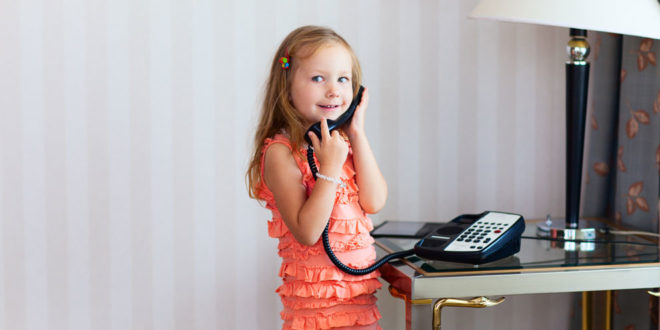Children learn swear words and name-calling in the same way they learn other aspects of language — by hearing it used around them. For the most part, young children don’t understand the literal meanings of swear words, but they do quickly realize from adults’ reactions that they have power. Often when trying to stop this behavior, unwittingly parents and teachers reinforce a child’s behavior.
If your child uses swear words or is name-calling, I invite you to consider the following:
* Experimenting with new words is normal.
* Children are generally good recorders but are often poor interpreters, repeating words or phrases they hear without knowing the meaning. Also, some slang words are derivatives of swear words. As adults, we understand where these words originate, but a child hasn’t learned the connections yet.
For example, a childcare provider noticed a child who used swear words only when role-playing at the preschool gas station. She discovered that a gas station attendant the child knew swore all the time, and so she evidently generalized this experience and believed that all gas station attendants swear.
* Ask yourself if your child is bored or frustrated. Consider that he may be unchallenged by an activity and is choosing to create his own diversions. Or is this the best way she knows how to get your attention?
* Remember that the goal is to eliminate the offensive language, not label your child as “bad” or “sinful.”
* At a time when your child is not using “naughty language,” take him aside and in simple terms talk about it. Tell him why you believe the words are not acceptable. Explore and practice with him what can be done or said differently.
* Notice when your child tends to talk this way. Is it after being with older children or upon coming home from school, a daycare setting or someone else’s home? Talk about your concerns to other adults who interact with your child. If necessary, consider altering your child’s environment if you can.
* If more than one child is involved, first focus on caring for the needs of the child who has been called a name or has been sworn at. Ignore the negative behavior of the name caller initially. It will not be helpful to shame the offensive child, especially in front of others.
* Resist making a direct connection between your child’s choice of words and his love for Jesus, or Jesus’ love for your child.
A Long Journey
Remember that a major goal in parenting is to help your child become responsible for her behavior and to respect others. This is a long journey. God sets standards before you, and then lovingly and patiently He works with you as you learn. Surely we can offer the same patience to our children.
Susan E. Murray writes from Berrien Springs, Michigan.
© 2002 - 2025, AnswersForMe.org. All rights reserved. Click here for content usage information. Answers for Me Support & encouragement for every-day life
Answers for Me Support & encouragement for every-day life



